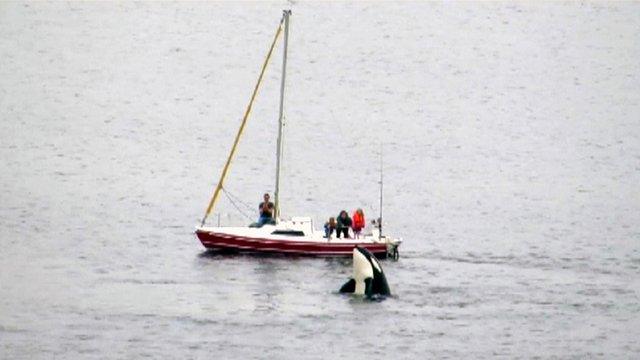Famous 70s killer whale found to be living in Scotland
- Published
Researchers have used archive images of the animal's dorsal fin to confirm the identification
Scientists studying Scotland's resident population of killer whales have identified an individual animal which hit the headlines in the 1970s.
The orca swam up the River Foyle in Northern Ireland in November 1977.
Efforts to persuade it to return to the open sea failed, leading to it being dubbed "Dopey Dick" by journalists in Londonderry.
The killer whale, officially known as Comet, is now said be living in the waters off Scotland's west coast.
Dopey Dick's true identity was discovered when old photographs were uploaded onto a Facebook page.
Killer whale expert Andy Foote and Hebridean Whale and Dolphin Trust science officer Dr Conor Ryan recognised the whale in the images as Comet, last recorded by the Trust off Dunvegan, Isle of Skye, in September 2014.
Distinctive features
Comet has been photographed many times in both Scotland and Ireland by researchers and members of the public, enabling scientists to track his movements.
Dr Foote said: "When I saw the photos on Facebook, I noticed that the white eye patch of Dopey Dick sloped backwards in a really distinctive fashion.
"This is a trait we see in all the West Coast Community whales, but it's not that common in other killer whale populations.

The killer whale was identified as Dopey Dick which swam up the River Foyle
"The photographs were all quite grainy, but it was still possible to see some of the distinctive features unique to Comet. I couldn't believe it - he was already a full-grown male back in 1977, when I was just five-years old."
Dr Ryan told BBC News: "A killer whale swam up the river into Derry and there were photographs and videos taken.
"From the pictures you can tell he was an adult male back then and he's still going, so we reckon he's at least 50 years old, possibly older.
"Even though he was nicknamed Dopey Dick, he probably knew exactly what he was doing."
The animal is part of a unique group of killer whales, which marine scientists refer to as the "west coast community".
Despite the news about the orca's survival, Dr Ryan is warning that the west coast community is facing an uncertain future.
No new calves
He said: "Since records began in the 80s, we haven't had any new animals join the population and we haven't had new calves either.
"The population is declining because as the older animals die, they're not being replaced.
"We're concerned that they're going to become extinct, possibly even in our lifetime."
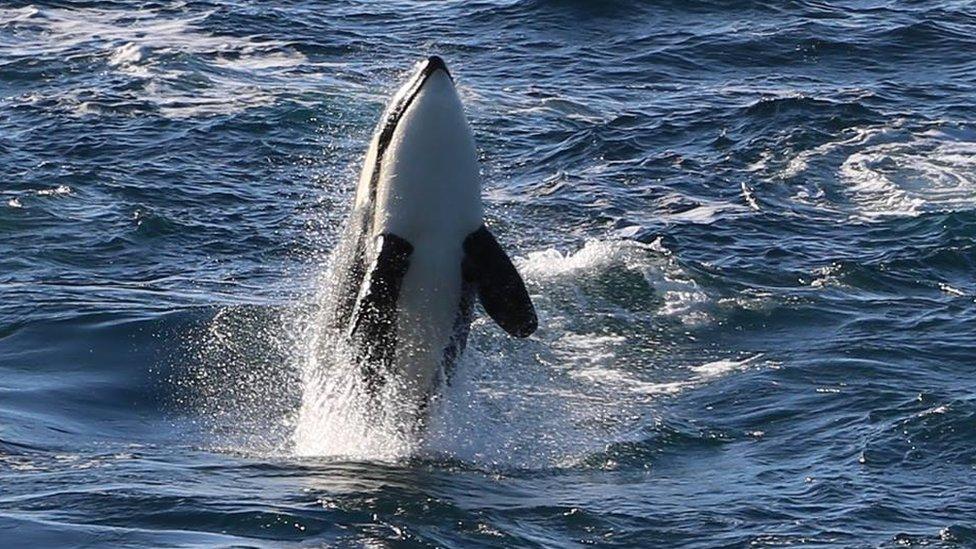
Martin Ramsay has photographed the killer whales off Scotland's coast
Pádraig Whooley, sightings officer of the Irish Whale and Dolphin Group, said: "This match places Comet very much at the upper limits of the typical life expectancy of male killer whales. Adult males generally live to around 30 years, but with an upper range of 50-60 years."
"So clearly time is not only running out for this individual whale - it is equally running out for whale biologists, who may not have much time left to gather information on this unique local population of killer whales that have made the waters of the British Isles their home."
In January, the researchers received more bad news when a female killer whale, known as Lulu, was found washed up on the island of Tiree.
The post-mortem examination was carried out by Dr Andrew Brownlow of the Scottish Marine Animal Stranding Scheme.
Dr Brownlow said: "She had a name, she had a back story, we knew where she'd been, we knew her history.
"Sadly, she died as a result of something which was to do with how humans use the seas.
"It was an entanglement in fishing rope which most likely led to her death.
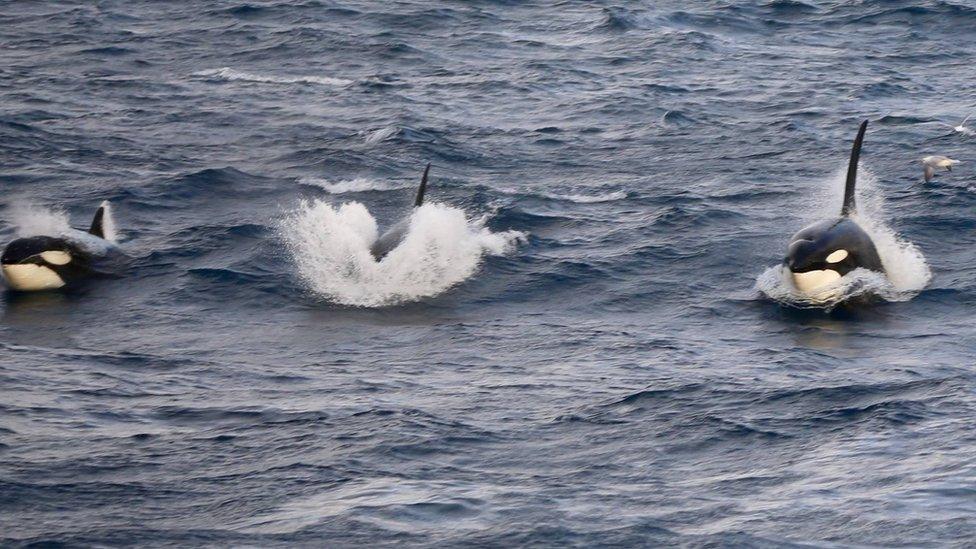
There are fears that Scotland's resident killer whales could die out
"All those things add together and really capture the imagination about both her life and what we're doing to affect the lives of the other whales and dolphins which live around our coastline."
No-one knows for sure why the west coast community has stopped breeding.
But scientists believe pollution in the marine environment may be the answer.
Dr Ryan said: "The best theory is that the killer whales have very high levels of pollutants in their bodies.
"They feed very, very high up on the food chain and if they feed on animals which also have pollutants in their bodies, they absorb them and can't get rid of them.
"We're talking about toxins like PCBs, which are now banned, but still have a legacy in the environment."
Members of the public are being encouraged to report sightings of killer whales in the waters around Scotland and Northern Ireland to the Hebridean Whale and Dolphin Trust.

Killer whale facts
Killer whales are not actually whales but are the largest members of the dolphin family.
The west coast orcas are between a metre and one-and-a-half metres longer than other killer whales.
They feed on whales, dolphins and porpoises.
Only eight individuals remain in the west coast pod
The west coast community are full-time residents in Scottish waters
Other killer whales also visit the area.
- Published21 January 2016
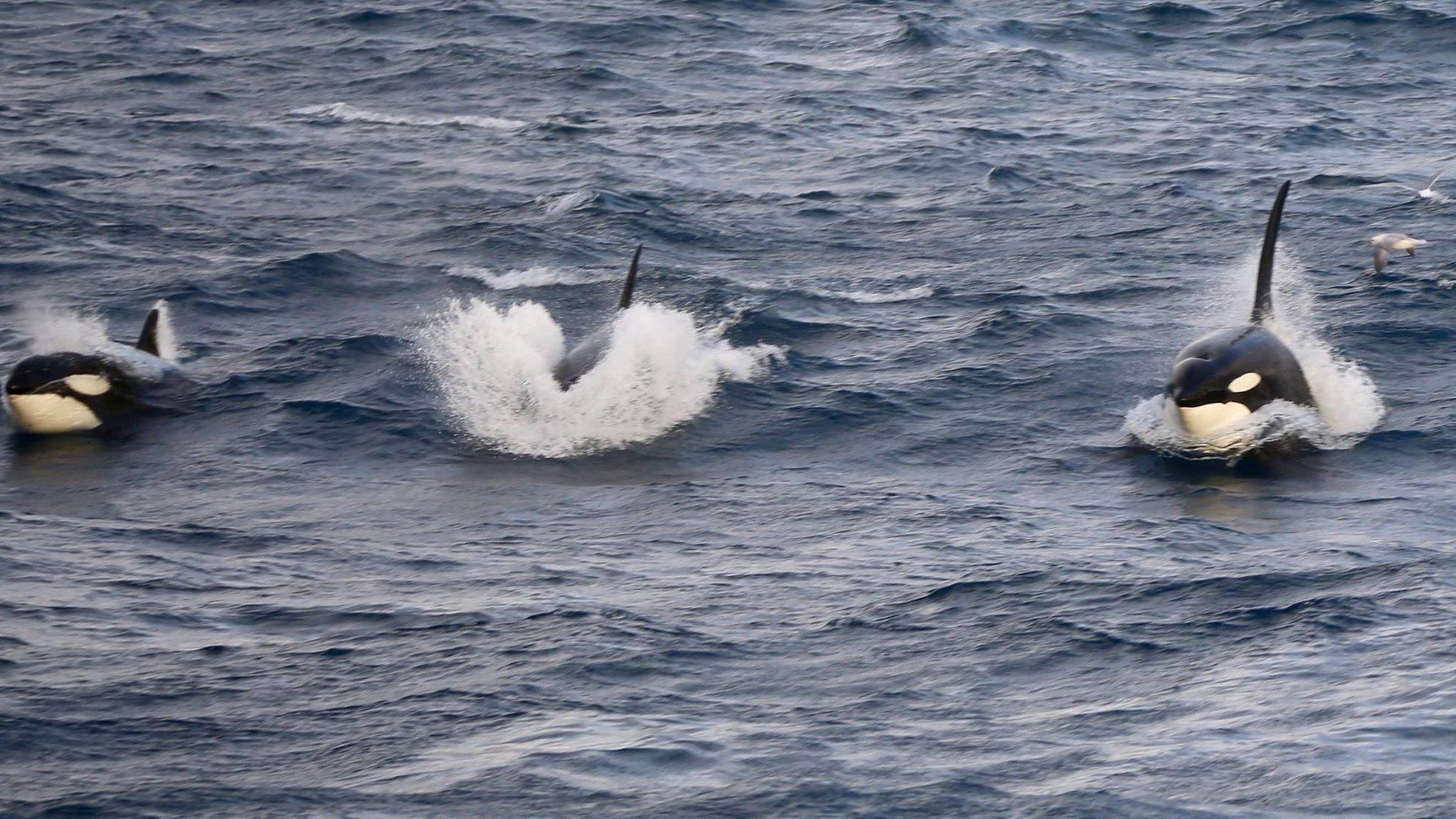
- Published8 January 2016
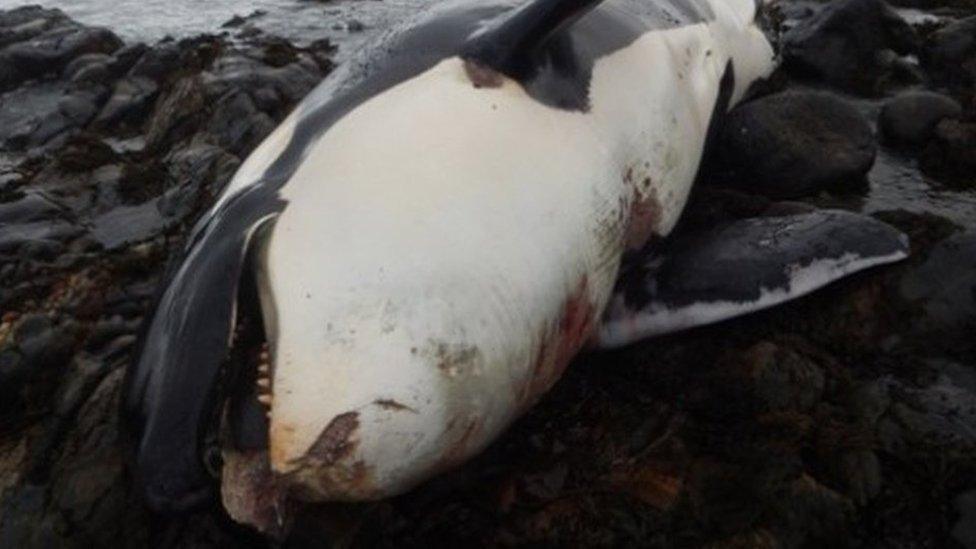
- Published6 January 2016

- Published14 January 2016
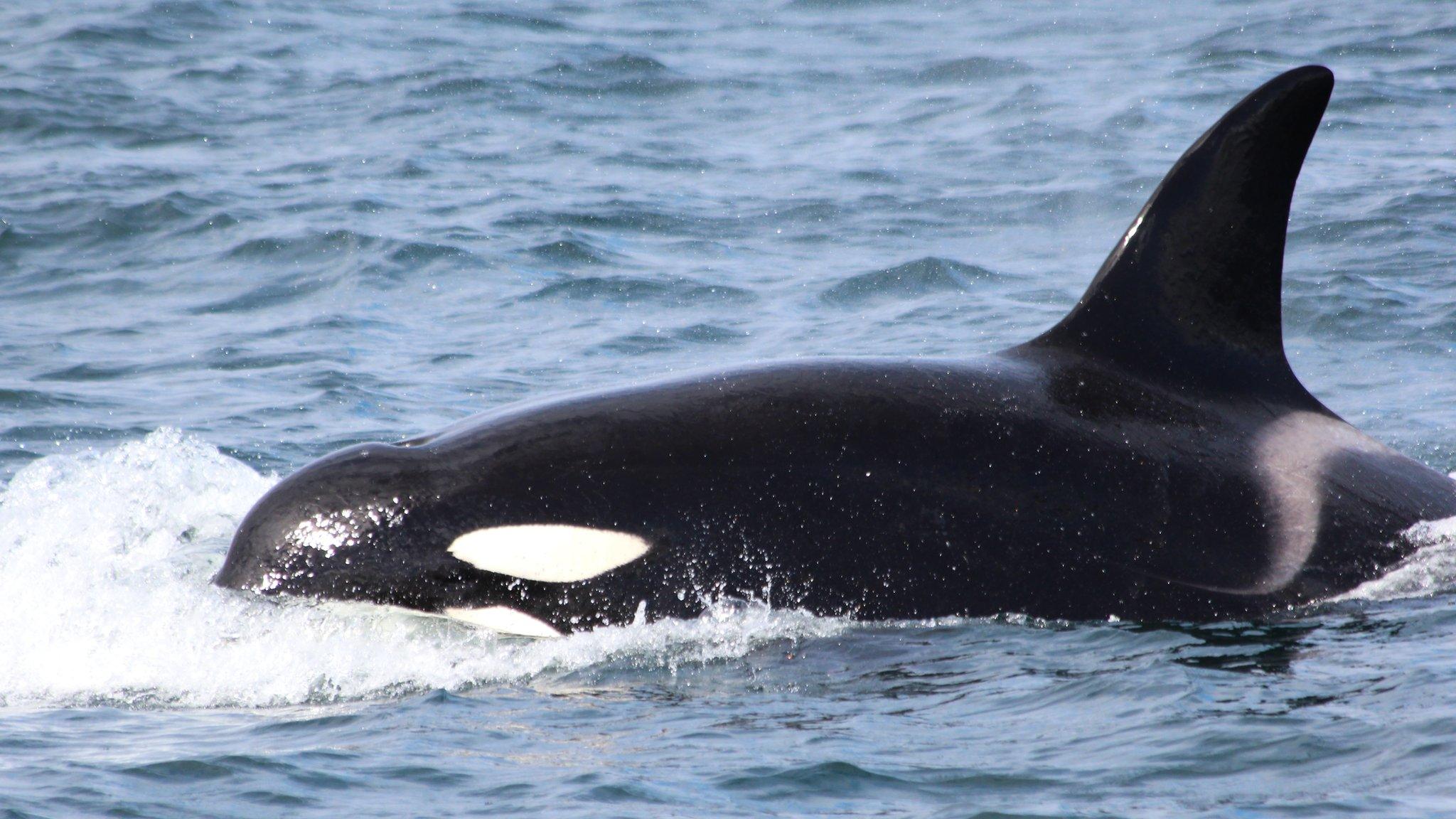
- Published30 July 2013
